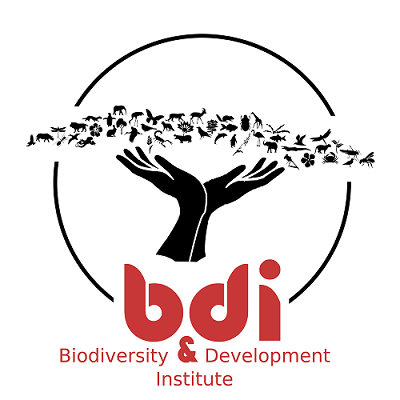Welcome! If you haven’t been there yet, please read our introduction before coming back here. Briefly, the Biodiversity and Development Institute (BDI) is a non-profit research organisation, staffed by academics, that provides opportunities for students to conduct research projects in South Africa.
We have several broad research themes. We expand upon the sub-themes below and upon the specific projects on our intranet (login required, please contact director@thebdi.org).
Our main themes are ecology, environmental sociology, ecological economics, and historical ecology. These themes overlap to a large degree, and our research projects often involve cross-disciplinary research involving several themes.
You can enquire about availability here.
Ecology
Citizen science
Citizen science occurs in many fields, but has a long history in the field of ecology, where people without formal research qualifications collect data to contribute towards formal research projects.Our citizen science projects focus on biodiversity monitoring, in the form of atlasing projects and specimen collection (georeferenced photos) for a virtual museum. Aside from the actual biodiversity monitoring research (below), we also study the sociological aspects of citizen science as a pursuit in its own right.
Biodiversity monitoring
Flowing from the citizen science research (above), we conduct biodiversity monitoring projects which include species distribution modeling, species overlap research, research on range shifts in response to climate change and habitat transformation, and phenological research on seasonal migration patterns.
Climate change
Biodiversity monitoring (above) can provide important insights for studying the effects of climate change. This includes monitoring species distribution shifts and changes in phenology in response to climate change.
Behavioural ecology
Many species in Africa are poorly studied in terms of basic biology, particularly behaviour, sociality, and inter-specific interactions. Even well-studied species may only have intensive research from a single or limited number of populations. We focus on predation risk and ecological facilitation. Predation risk provides us with a paradigm for understanding and quantifying trade-offs that animals make among foraging, finding mates, and avoiding predation – elements of life history that can drive evolutionary fitness. Ecological facilitation is a critical aspect of habitat suitability. As landscapes change due to climate change, habitat alteration (e.g. agriculture), and expanding urbanisation, certain species may shift their ranges or become locally extirpated. These community changes can have cascading effects, especially where inter-specific facilitation is lost.
Population dynamics / population ecology
Through ringing (banding) studies on a variety of bird species, we conduct research on basic biology (e.g. morphology, energetics, moult patterns), population dynamics (e.g. mark-recapture models), and phenology (timing of moult, seasonal migration).
Urban ecology, reconciliation ecology
Very few environments anywhere in the world are free from anthropogenic disturbance. Historically, much ecological research and conservation effort has focused on populations assumed to be in a “natural” environment. Increasingly, it is becoming clear that we need to understand ecological phenomena under conditions of anthropogenic disturbance, as this is now the default condition for most habitats. Specifically, urban areas need to be more fully integrated into our conservation efforts and into our understanding of habitat ecology. We conduct research at sites that cover the spectrum from urban areas, to agricultural landscapes, to protected areas. We have a particular interest in understanding the role of urban habitat in maintaining pollinator populations. We also have an interest in understanding how anthropogenic disturbance can affect predation risk (above).
Disturbance ecology, restoration ecology
Allied to our reconciliation ecology theme (above) we conduct research on disturbance ecology. In some cases, this refers to anthropogenic disturbance, while in other cases disturbances could be ‘natural’. This field may prove crucial in providing insight into how climate-related disturbance might affect species and communities going forward.
Environmental sociology
This area of research is fundamental to the mission of our organisation. Understanding how human societies engage with their natural environments is key to forging a sustainable path towards biodiversity conservation and simultaneous social upliftment or development. Thus, we seek to understand how societal perceptions and quantifiable human behaviour change as people interact with their natural surroundings, as people participate in conservation and research projects, and as people are allowed to engage with scientific data about their environment.
Ecological economics
Our interest in this field revolves around how humans value biodiversity and ecosystem services (including beyond monetary value). We are also interested in how sustainable agriculture and sustainable development are valued and how those value determinations can be integrated into existing economic behaviour.
Historical ecology
Under this research theme, we seek to understand how landscape transformation has occurred as successive human societies have interacted with their natural environment. This background provides the important context needed for evaluating current ecological patterns and processes and for modeling the trajectories of landscapes under future change.
Learn more:
Find out more about our study sites, and associated logistics, or for more details on the specific projects, head to our intranet (login required, please contact director@thebdi.org).
Availability:
You can send us an enquiry.
